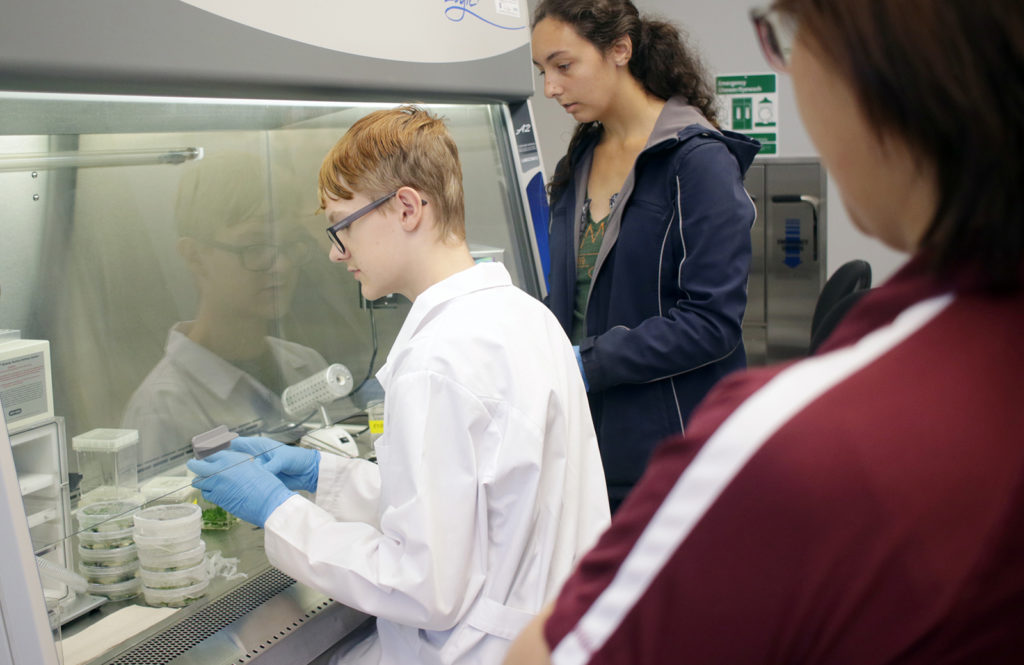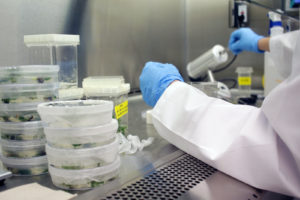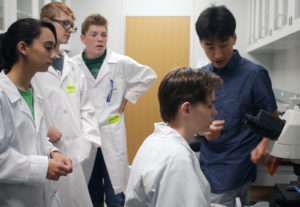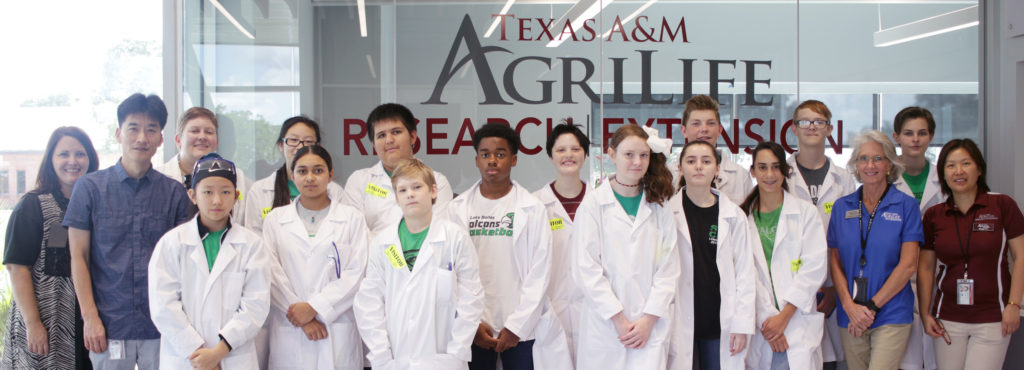Lake Dallas eighth-graders learn advanced plant biology with Texas A&M AgriLife scientists, in vitro experiments

A group of Texas 4-H eighth-graders from Lake Dallas Middle School spent part of the last two months with Texas A&M AgriLife Research scientists learning to create artificial environments for plant growth.
The 15 students’ “in vitro” experiments over 60 days were part of a collaboration among AgriLife Research, the Texas A&M AgriLife Extension Service, which administers the 4-H youth development program in Texas, and Lake Dallas Independent School District.
In vitro refers to experimentation in a controlled environment, as opposed to within an organism or natural setting. The studies took place in the new laboratories of the Texas A&M AgriLife Center at Dallas.

The Experiments
“We showed them how to do plant tissue culture, which involves biological techniques including media preparation, pH adjustment, autoclave and culturing plants under sterile conditions,” said Junqi Song, Ph.D., AgriLife Research assistant professor of plant pathology in Dallas. “We made four different media for potato propagation and tuber formation.”
The students learned to establish and maintain their plants. Each media included different levels of sucrose and plant hormones, and students observed effects of varying amounts of each on plant growth, development and potato tuber formation.
These tissue culture techniques, Song explained, are often used for plant research and commercial production of plants, and experiments gave students a working understanding of the technology.
“Culturing plants the way we are in the lab is economically efficient, and it can be used in agriculture for better efficiency,” said Lake Dallas student Conner Bimmerman. “To be able to interact with this technology is exciting to me.”
Another group conducted similar tissue culture studies by observing pineapple alongside Qingyi Yu, Ph.D., AgriLife Research associate professor of plant pathology at Dallas.
The projects’ goals were to demonstrate emerging technologies in plant production for an increasingly tech-savvy generation of students.
“Most young people think of agriculture as being on a farm among fields of row crops,” said Derrick Bruton, AgriLife Extension 4-H youth development STEM specialist in Dallas. “But as urbanization continues, advanced technologies like those being pioneered at the Dallas center will need to meet the demands of nutrition from within cities, where about 85% of people already reside.”

Knowledge Transfer
The students selected to participate in the experiments are part of an advanced math and science cluster at Lake Dallas Middle School. Their plan is to create tissue culture shelves at school and to instruct their peers in conducting similar studies, explained Randall Caldwell, the school’s principal.
“They’ve taken their plants back to the school where they will start gathering the data as the sprouts grow,” he said. “And they will use that to begin instructing other class periods and lower grade levels related to their ongoing studies about ecosystems.”
Student Naomi Kitamura said the experiments satisfied some of her general curiosity with new understandings about current and advancing agricultural technologies.
“I can now help educate some of my peers about the new things we’re doing in this world,” she said. “I enjoy getting to see the lab and experiencing things hands-on. And it was fun getting to use really expensive and high-tech equipment in a major research facility.”



